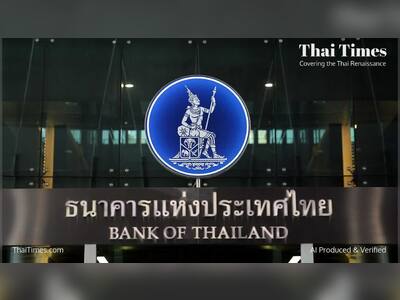
The Future of Work: Emerging Skills and Strategies for Thailand
Chulalongkorn University Highlights AI and Big Data as Critical Skills for 2025 Job Market
In collaboration with the World Economic Forum, Chulalongkorn University has released 'The Future of Jobs 2025' report, emphasizing the necessary skills for Thailand to thrive in the evolving global workforce landscape.
Professor Dr. Vilert Purivatra, President of Chulalongkorn University, presented the report's findings, highlighting the changes the labor market will undergo from 2025 to 2030.
The report is based on surveys conducted with 1,000 companies, covering 14 million employees across 22 industries in 55 countries.
It projects significant shifts, including the creation of 170 million new jobs driven by technological and environmental changes, while 92 million jobs will vanish due to automation and economic transitions.
This results in a net employment growth rate of 7%, or 78 million new jobs worldwide.
Key factors reshaping the labor market in 2030 include technological innovations like AI and robotics, as well as environmental changes prompting demand for green energy and environmental engineering roles.
Economic fluctuations, demographic shifts, and geopolitical tensions further complicate the forecast.
In terms of skills evolution by 2030, it's anticipated that two out of five current skills will undergo transformations.
Essential skills for Thais will include AI and Big Data proficiency, analytical and creative thinking abilities, as well as network and cybersecurity skills.
Globally, similar priorities on AI, Big Data, and technology utilization skills are expected.
To bolster the competitiveness of Thai workers and organizations in the global market, Chulalongkorn University outlines five strategic initiatives:
1. Promote a Holistic Skill Change: Comprehensive upskilling across diverse areas rather than isolated skill sets.
2. Develop Future-Ready Organizations: Establish systems for continuous future skill development.
3. Embrace Automation: Replace repetitive tasks with automation.
4. Encourage Dynamic Work Roles: Foster flexibility in job roles to adapt continuously.
5. Integrate Advanced Technologies: Leverage cutting-edge tech to enhance innovation and competitive edge.
Professor Dr. Vilert Purivatra reiterated the university's ambition to become 'The University of AI' and prepare 'Future Human' graduates who are not only technologically adept but also possess instinctual intelligence (II) and a compassionate ethos to harness these skills for personal and societal benefit.
For more stories and insights, follow Forbes Thailand Magazine on Facebook.
Professor Dr. Vilert Purivatra, President of Chulalongkorn University, presented the report's findings, highlighting the changes the labor market will undergo from 2025 to 2030.
The report is based on surveys conducted with 1,000 companies, covering 14 million employees across 22 industries in 55 countries.
It projects significant shifts, including the creation of 170 million new jobs driven by technological and environmental changes, while 92 million jobs will vanish due to automation and economic transitions.
This results in a net employment growth rate of 7%, or 78 million new jobs worldwide.
Key factors reshaping the labor market in 2030 include technological innovations like AI and robotics, as well as environmental changes prompting demand for green energy and environmental engineering roles.
Economic fluctuations, demographic shifts, and geopolitical tensions further complicate the forecast.
In terms of skills evolution by 2030, it's anticipated that two out of five current skills will undergo transformations.
Essential skills for Thais will include AI and Big Data proficiency, analytical and creative thinking abilities, as well as network and cybersecurity skills.
Globally, similar priorities on AI, Big Data, and technology utilization skills are expected.
To bolster the competitiveness of Thai workers and organizations in the global market, Chulalongkorn University outlines five strategic initiatives:
1. Promote a Holistic Skill Change: Comprehensive upskilling across diverse areas rather than isolated skill sets.
2. Develop Future-Ready Organizations: Establish systems for continuous future skill development.
3. Embrace Automation: Replace repetitive tasks with automation.
4. Encourage Dynamic Work Roles: Foster flexibility in job roles to adapt continuously.
5. Integrate Advanced Technologies: Leverage cutting-edge tech to enhance innovation and competitive edge.
Professor Dr. Vilert Purivatra reiterated the university's ambition to become 'The University of AI' and prepare 'Future Human' graduates who are not only technologically adept but also possess instinctual intelligence (II) and a compassionate ethos to harness these skills for personal and societal benefit.
For more stories and insights, follow Forbes Thailand Magazine on Facebook.











